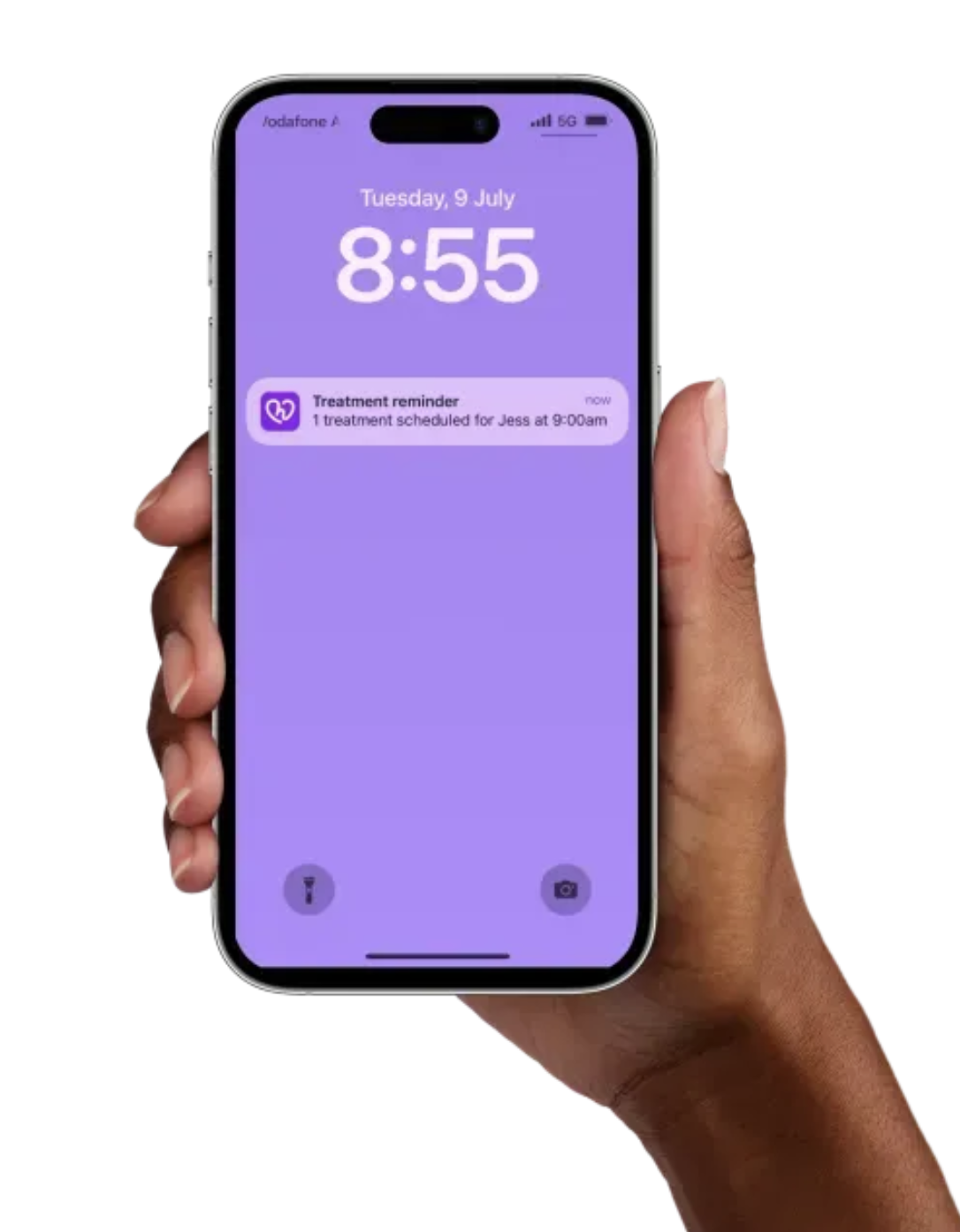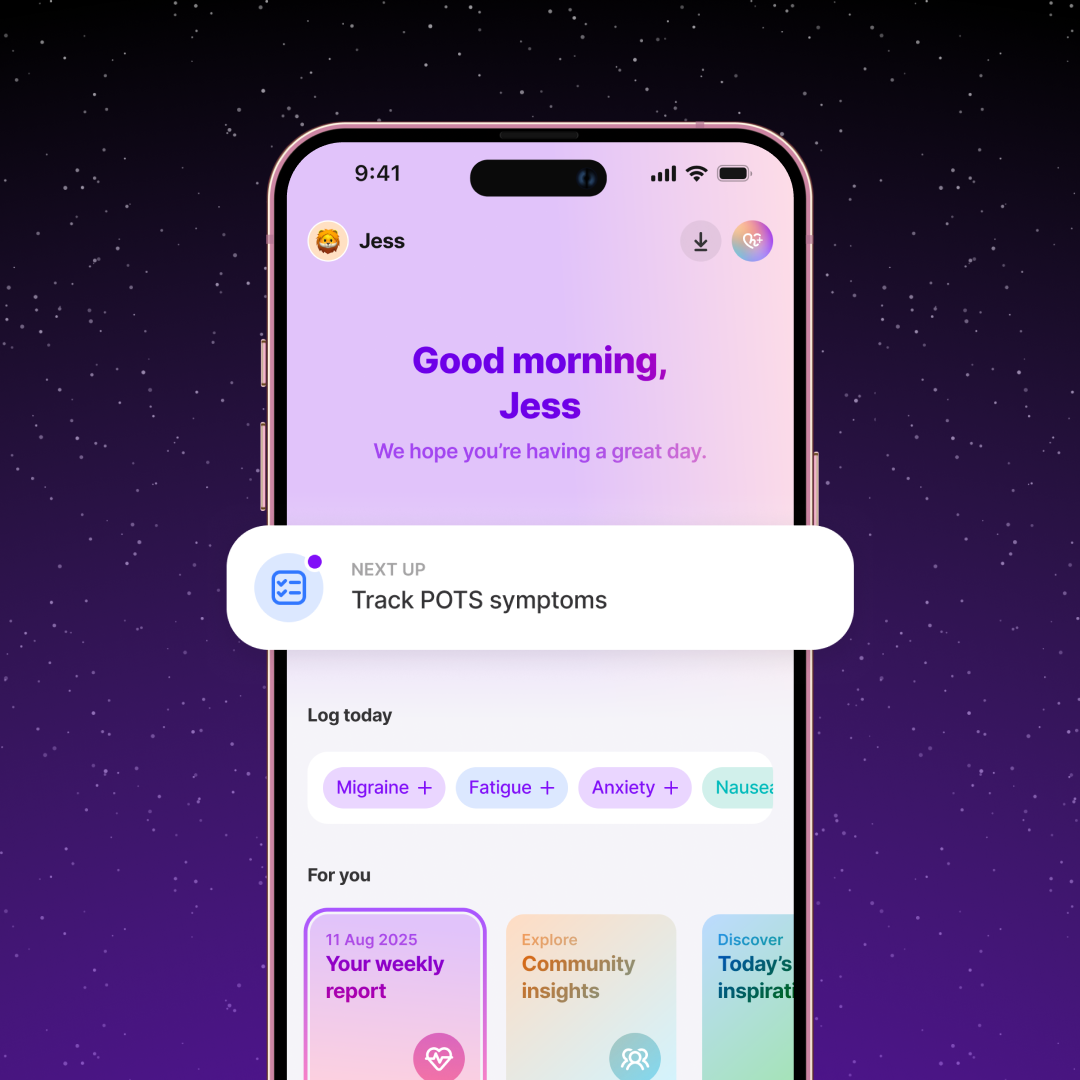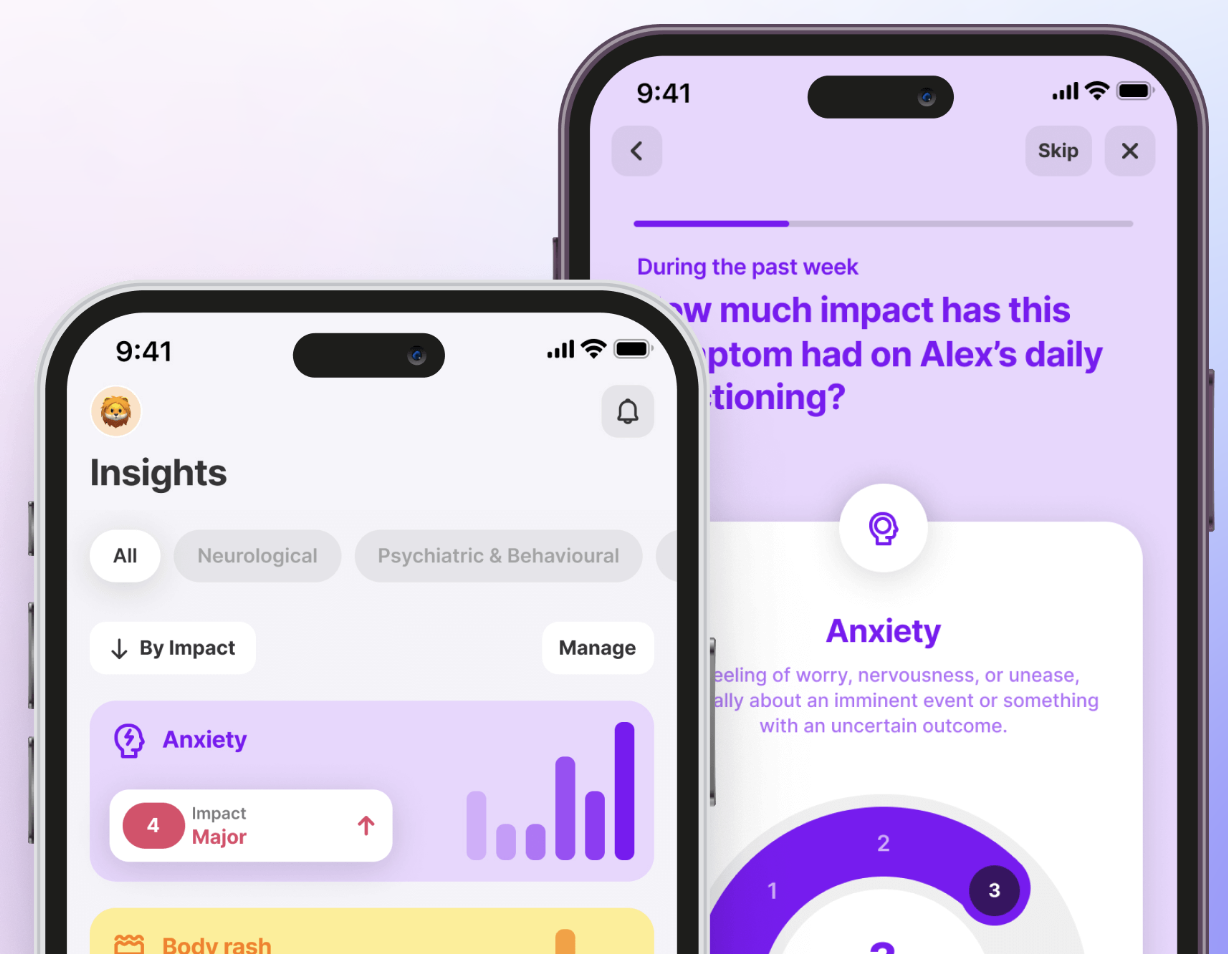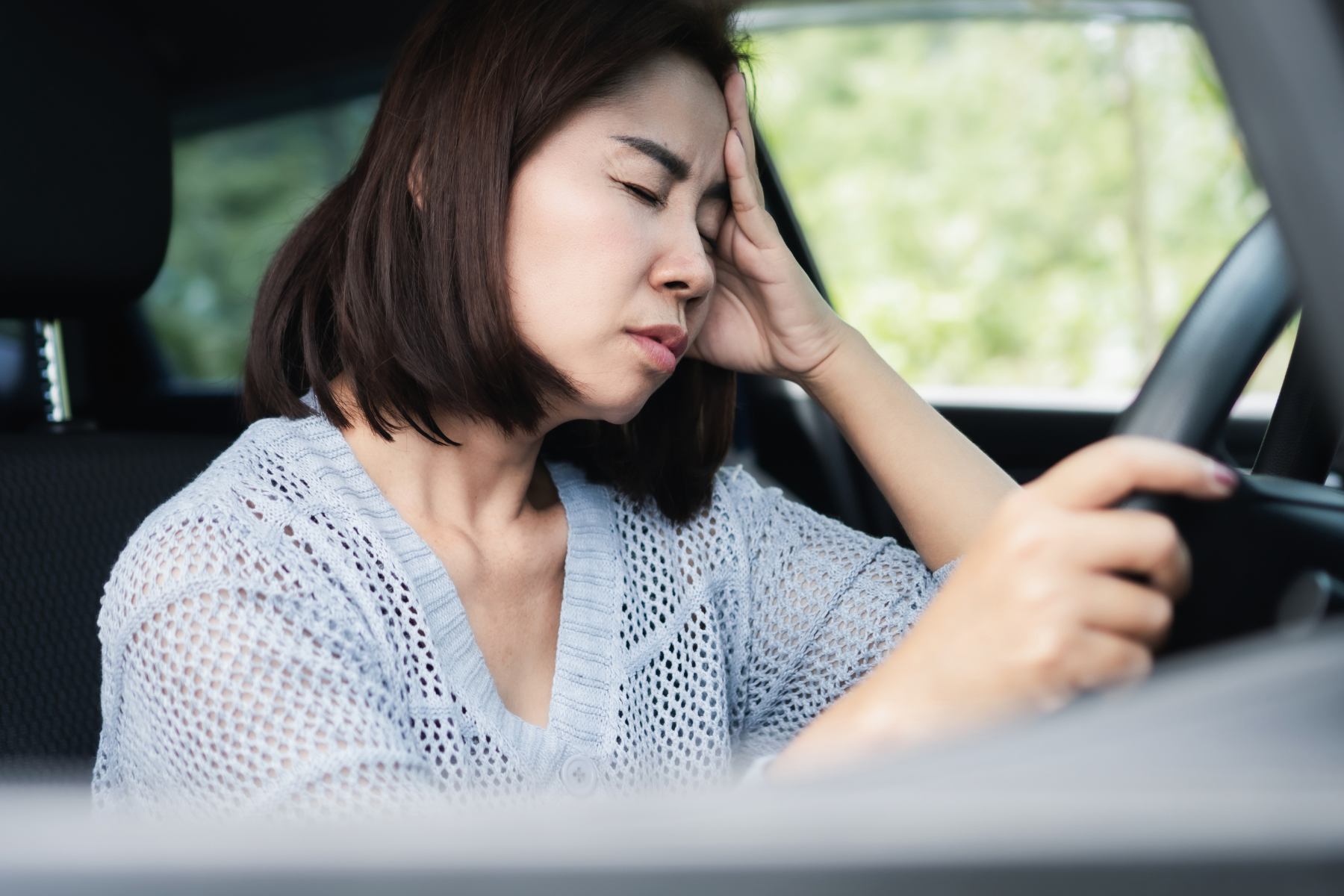Best Electrolytes for POTS: Types, Benefits & More
August 29, 2025

- Electrolytes may support people with POTS by helping maintain blood volume and reducing common symptoms such as dizziness, fatigue, and brain fog.
- Options include simple salt solutions, oral rehydration salts, electrolyte mixes, magnesium supplements, and salt tablets. Each offers different benefits and considerations.
- Factors like sugar content, mineral balance, and individual tolerance all matter when choosing the right electrolyte source for your body.
- Tracking hydration and electrolytes with the Human Health app can reveal patterns and make it easier to have informed, productive conversations with your healthcare provider.
Disclaimer: Human Health is a health tracking platform and does not provide medical advice, diagnosis, or treatment. The information below is for educational purposes only and should not replace conversations with a qualified healthcare provider.
Imagine standing up and feeling your heart race, your vision blur, and your body fight to stay steady. For many people with postural orthostatic tachycardia syndrome (POTS), this is daily life.
Electrolytes like sodium, potassium, and magnesium may help support hydration and circulation, offering relief from symptoms such as dizziness and fatigue.
In this article, you will learn the main benefits and considerations, the most common types, and how the Human Health app can help you track what works best for your body.
Reasons & benefits of taking electrolytes for POTS
Adding electrolytes to your hydration plan may support people with POTS in several ways. Here are some key benefits often discussed by researchers and the community.
May support blood volume
Electrolytes (especially sodium) help your body retain fluid, which may increase blood volume. For people with POTS, this may help reduce dizziness and faintness.
May reduce rapid heart rate
Some studies suggest that electrolyte solutions may help lower the increase in heart rate seen when standing, although their effectiveness varies and more research is needed.
Supports everyday function
By supporting hydration and circulation, electrolytes may help some people with POTS carry out daily routines with greater steadiness and less draining fatigue.
Together, these benefits show why electrolytes are often part of POTS management discussions, though their impact can differ from person to person.
Considerations of taking electrolytes
While electrolytes may support hydration in POTS, there are important factors to keep in mind before choosing or using them regularly.
Sugar and additives
Some electrolyte drinks contain added sugar that may worsen symptoms for certain people. Reading labels can help you avoid unwanted extras.
Individual tolerance
Electrolytes affect people differently. What supports one person may cause stomach upset, bloating, or no benefit for another. Tracking intake and symptoms helps identify patterns.
Balancing minerals
Too much sodium or an imbalance between sodium, potassium, and magnesium may cause side effects. It’s important to discuss any concerns with your healthcare provider.
Cost and accessibility
Pre-mixed electrolyte solutions and supplements can become expensive over time. For many, simple options like adding salt to water may be more sustainable.
These factors don’t mean electrolytes aren’t useful, but they highlight why it’s important to pay attention to your body’s response and involve your healthcare provider in the process.
Recommended electrolytes for POTS
People with POTS often experiment with different electrolyte sources to see what feels most supportive. Here are some of the most commonly discussed options.
Homemade salt solutions
Mixing water with table salt (or sea salt) is a simple, low-cost way to increase sodium intake. Many people with POTS use this method daily.
Oral rehydration salts (ORS)
Widely studied in clinical settings, ORS packets combine sodium, potassium, and glucose in carefully balanced ratios. They’re often used for rehydration and may support POTS hydration.
{{inline-cta-1}}
Electrolyte drink mixes
Powdered mixes (such as LMNT or Liquid I.V.) provide sodium, potassium, and magnesium. Some users in POTS forums report fewer dizzy spells after adding them. Users in Reddit have discussed a variety of homemade remedies to help save cost and improve taste.
Magnesium supplements
While evidence in POTS is limited, some people report that Magnesium improved sleep quality and fewer muscle cramps with supplements.
“I have POTS and used to have near-daily Migraines, to the point I was hospitalized. I now take 500mg supplements every night, and it helped tremendously with the migraines/headaches, as well as my muscle weakness and brain fog. With your digestion issues, I'd def start taking the Magnesium slowly, to ensure it doesn't cause you discomfort.” - User in Reddit POTS forum
Salt tablets
Salt tablets are sometimes used to boost sodium quickly when diet alone isn’t enough. Research shows that higher salt intake can improve blood volume and reduce symptoms in POTS, but experts caution against heavy or long-term use. Chronic high sodium may strain the heart, kidneys, and blood vessels, so individualized, moderate supplementation is usually advised.
There’s no single electrolyte option that works best for everyone with POTS. Exploring different approaches, and tracking how your body responds, can help you find what feels most supportive.

Best practices for daily electrolyte use
Consistency matters more than single doses. Here are some practical ways to make electrolyte use more effective in daily POTS management.
Spread intake through the day
Taking electrolytes in smaller, spaced-out servings is often more effective than drinking a large amount all at once. Research shows that metered intake supports better hydration, and since meals can already affect heart rate and circulation in people with POTS, spreading electrolytes across the day may help keep things more steady.
{{pro-tip-1}}
Pair electrolytes with fluids
Electrolytes need water to be effective. Try sipping steadily over the day instead of drinking large amounts at once. This approach may help avoid the “sloshy stomach” feeling while still keeping circulation supported. It also prevents over-diluting electrolytes by chasing them with too much plain water.
Adjust for activity and heat
Heat and exertion can place extra strain on circulation, which may make symptoms harder to manage in POTS. Staying on top of fluids and electrolytes before or after these situations may help replace what’s lost and support recovery. Planning ahead for warm weather, exercise, or other heat exposure makes it easier to stay stable.
{{pro-tip-2}}
Check ingredients carefully
Not all electrolyte products affect people with POTS the same way. Ingredients like caffeine or alcohol can make symptoms worse for some, while others tolerate them without problems. Because reactions vary, it’s best to read labels and pay attention to how your body responds so you can choose the options that support hydration without triggering symptoms.

Track how your body responds
The “right” electrolyte plan looks different for everyone with POTS. Some individuals feel best with higher sodium levels; others prefer more balanced mixes. Paying attention to dizziness, fatigue, heart rate, and energy patterns over time can show whether your approach is helping. Discussing these observations with your doctor adds another layer of support.
Electrolytes aren’t a quick fix, but using them consistently and thoughtfully can make a meaningful difference. The key is to listen to your body, track changes, and refine your routine over time.
Tracking doesn’t just stop at electrolytes. With the Human Health app, you can also log supplements to see how they affect symptoms like energy, dizziness, or sleep.
Track what works best for your body with the Human Health app
Finding the right electrolyte balance with POTS takes patience and self-awareness. What works for someone else may not be the answer for you, which is why your own data matters most. With the Human Health app, you can track electrolytes, hydration, and daily symptoms to uncover patterns that put you in control of the conversation with your healthcare provider.
Start today and give yourself the tools to advocate with confidence and build a clearer path forward.
Frequently Asked Questions:
1. What’s the difference between electrolyte drinks and salt tablets for POTS?
Electrolyte drinks combine sodium with other minerals like potassium and magnesium, while salt tablets provide a concentrated sodium source alone.
2. Are there any electrolyte products that worsen symptoms?
Some people report issues with products high in sugar, caffeine, or artificial flavors. It often depends on individual tolerance and personal health factors.
3. How do I know if my hydration plan is working?
Tracking energy, dizziness, and heart rate changes over time can reveal whether your hydration plan supports you. Only a doctor can confirm clinical progress.
Sources:
- National Library of Medicine: Diagnosis and management of postural orthostatic tachycardia syndrome: A brief review
- National Library of Medicine: Development of oral rehydration salt solution: A triumph of medical science
- National Library of Medicine: Worsening Postural Tachycardia Syndrome is Associated with Increased Glucose Dependent Insulinotropic Polypeptide Secretion
- National Library of Medicine: Dietary sodium and health: how much is too much for those with orthostatic disorders?
- MDPI: The Impact of a Commercial Electrolyte Beverage on the Hydration Status of Active Men and Women
- Dysautonomia International: Lifestyle Adaptations for POTS
Disclaimer: Human Health is a health tracking platform and does not provide medical advice, diagnosis, or treatment. The information on this site is intended to support, not replace, conversations with qualified healthcare professionals.
This is a div block with a Webflow interaction that will be triggered when the heading is in the view.


Track Everything Inside The Human Health App
Track lifestyle changes, medications, supplements & more inside the Human Health app!







Pro tip
Use the Human Health app to log timing and notice whether mornings, afternoons, or evenings bring different effects.
Pro tip
Setting gentle reminders in the Human Health app can help you stay consistent during summer months or busier days.

.jpg)



.png)

